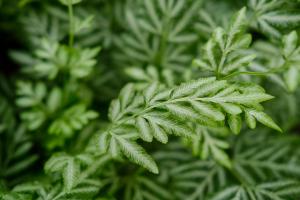Do Water Plants Leave Chemicals in the Water?
Water plants have always been an essential part of aquatic ecosystems. They improve water quality, provide shelter and food for aquatic life, and maintain a healthy balance in the ecosystem. However, one question that has been asked quite often is whether these plants leave chemicals in the water.
The Truth Behind Water Plants and Chemicals
The answer is yes. Water plants do release chemicals into the water. These chemicals are called allelochemicals, and they serve several purposes.
Firstly, allelochemicals help protect the plants from predators by deterring herbivores and even other plants from encroaching on their space. Secondly, they contribute to the nutrient cycle by breaking down organic matter and improving the quality of the surrounding water. Lastly, they serve as attractants for pollinators and seed dispersers, which are vital for the survival of these plants.
However, the release of allelochemicals can have adverse effects on other aquatic life. When the concentration of these chemicals reaches toxic levels, it can affect the growth and development of other organisms, especially if they are sensitive to these compounds.
The Impact of Allelochemicals on Aquatic Life
The impact of allelochemicals on aquatic life can be quite varied. Some organisms might not be affected by these compounds at all, whereas others might be more susceptible to their effects. Some of the vital signs of toxicity due to these chemicals include:
Damage to aquatic plants, including stunted growth, leaf loss, and even death.
Reduction in photosynthesis, which can cause the leaves to die off and ultimately affect the entire plant.
Reduced growth rates and reproduction of aquatic animals. These animals might also exhibit behavioral changes due to the exposure to these compounds.
Changes in food web dynamics can occur, as the allelochemicals can affect the survival rates of both primary producers and organisms that feed on them.
In some cases, allelochemicals can also affect human health. For instance, some of these chemicals can cause skin irritation, respiratory problems, or even have carcinogenic properties. However, the chances of humans being exposed to these compounds are minimal.
The Role of Water Plants in Maintaining Ecosystem Health
Despite the potential negative effects of allelochemicals on other aquatic life, water plants are still crucial for the health of the ecosystem. They play a vital role in maintaining the nutrient cycle, providing shelter and food for aquatic organisms and contributing to the overall balance of the ecosystem.
In conclusion, water plants do leave chemicals in the water, but the effects of these compounds on aquatic life depend on several factors, including the concentration of the allelochemicals, the sensitivity of the organisms to these compounds, and the presence of other environmental stressors. Nevertheless, water plants' benefits far outweigh the potential negative effects of allelochemicals, and they are crucial for maintaining the health of the aquatic ecosystem.

 how many times do yo...
how many times do yo... how many planted tre...
how many planted tre... how many pine trees ...
how many pine trees ... how many pecan trees...
how many pecan trees... how many plants comp...
how many plants comp... how many plants can ...
how many plants can ... how many plants and ...
how many plants and ... how many pepper plan...
how many pepper plan...
































